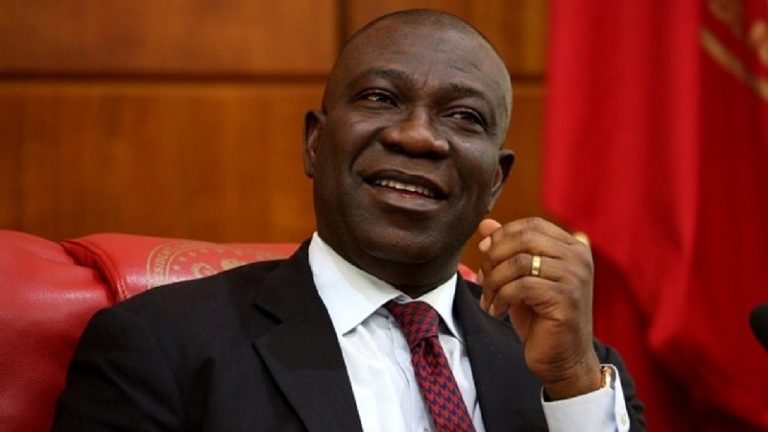
The senator representing Enugu West in the Senate, the upper house of the Nigerian bicameral federal legislature, Ike Ekweremadu, Ph.D., has said that Nigeria is the only known federation globally that runs a central police force. He also stated that sincere conversational dialogues on this and other contradictions of our federation may help in deepening Nigeria’s democracy.
Ekweremadu, former Deputy President of the Senate, who’s concurrently a Professor and Mentoring scholar in E-Governance and Strategic Government Studies at the Southern University, Baton Rouge, Louisiana, USA, contends that it is impossible to achieve effective security governance with the current structure of the Nigeria police.
He also noted that the planned community policing subsumed under the present police structure will be futile because it will not achieve concrete, measurable and sustainable policing of the country, thus, advocating policing institutions controlled by the states in the federation as practiced by other notable federations in the world.
Register for Tekedia Mini-MBA edition 19 (Feb 9 – May 2, 2026): big discounts for early bird.
Tekedia AI in Business Masterclass opens registrations.
Join Tekedia Capital Syndicate and co-invest in great global startups.
Register for Tekedia AI Lab: From Technical Design to Deployment (next edition begins Jan 24 2026).
Ekweremadu made these submissions on Wednesday in a lead presentation at the Colloquium tagged, Beyond Branding: Engineering a Citizen-led Proposition for Nigeria’s National Cohesion and Global Positioning, which took place at Sheraton Hotel, Abuja. According to a statement released by Omoniyi Ibietan, the Colloquium is a companion programme of the presentation of an iconoclastic book on marketing communication, Pitch: Debunking Marketing’s Strongest Myths, written by Ikem Okuhu, a former specialised journalist in brands and marketing reporting, and founder of BRANDish, Nigeria’s “first nationally circulating brands and marketing magazine.
Ekweremadu told the audience that a Citizen-led democratic political participation must include, in the Nigerian context, town meetings and special Parliaments of constituency stakeholders which are already instituted in Enugu West Senatorial District, as well as public hearings and referendums among others. At public hearings, he insisted that citizens and communities must be given opportunity to have a say in appropriation, including the nature of projects they require in their constituency, suggesting it is improper for the government to establish projects in communities without consultation with the citizens.
Indeed, Ekweremadu has put in concrete context, a paradigm of development established in the late 1960s that speaks to consultation and inclusiveness that accommodates participation of supposed beneficiaries of development programmes from conception to monitoring and evaluation of projects and programmes.

Ekweremadu bemoaned the fact that referendums, a provision of the Nigerian Constitution, only speak to state or local council creation, and recall. Even though no state creation proposal ever got to the referendum stage, referendums are meant to address more serious issues that transcend the state creation and recall processes, as evident in the applications of referendums in other jurisdictions.
The book reviewer, Nduneche, Ezurike, Head of Brand and Marketing Communications at Polaris Bank, commended Okuhu for use of insights and experiences, and also noted that Okuhu’s use of first person narrative style and storytelling acumen make the book gripping and mentally stimulating. Ezurike also spoke glowingly about Okuhu’s use of graphics, use of case study methods and fact-finding involving over 200 brands as commendable. These include brands like Alabukun, an effective analgesic, indigenous to Nigeria, and ‘bitterleaf’ soup, which momentarily displaced ‘Egusi’ soup as a ready substitute during Shagari Administration’s imposition of austerity measures in the Second Republic.
Okuhu advocated that brands will fare better if CEOs see themselves as CMOs (Chief Marketing Officers) and objected to the use of administrators as CEOs. This impropriety explains why many Nigerian brands, especially main company brands, have been killed or undermined on the altar of newer brands. Okuhu insisted that innovation is great but it must synergise and resonate with utilitarian value of products and services because ultimately, consumers buy utility not innovation.



